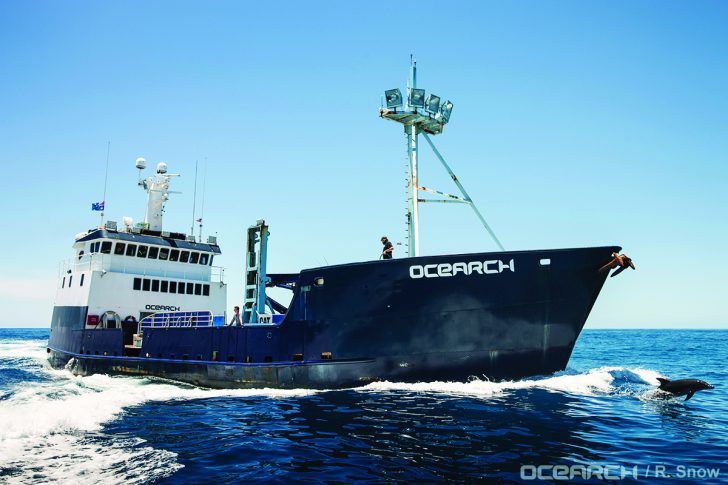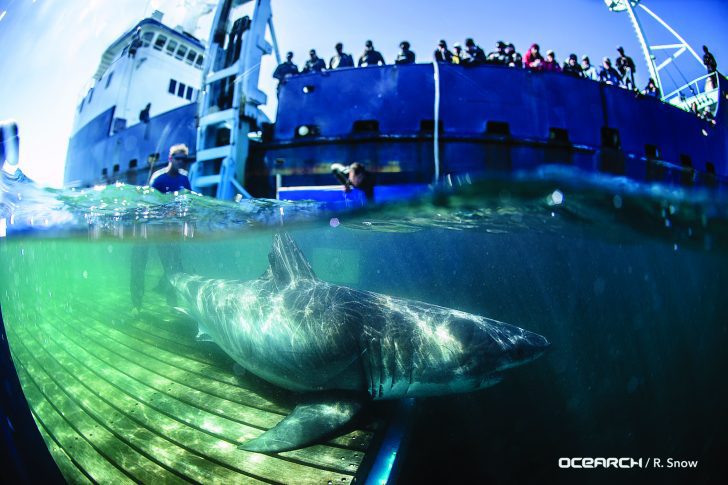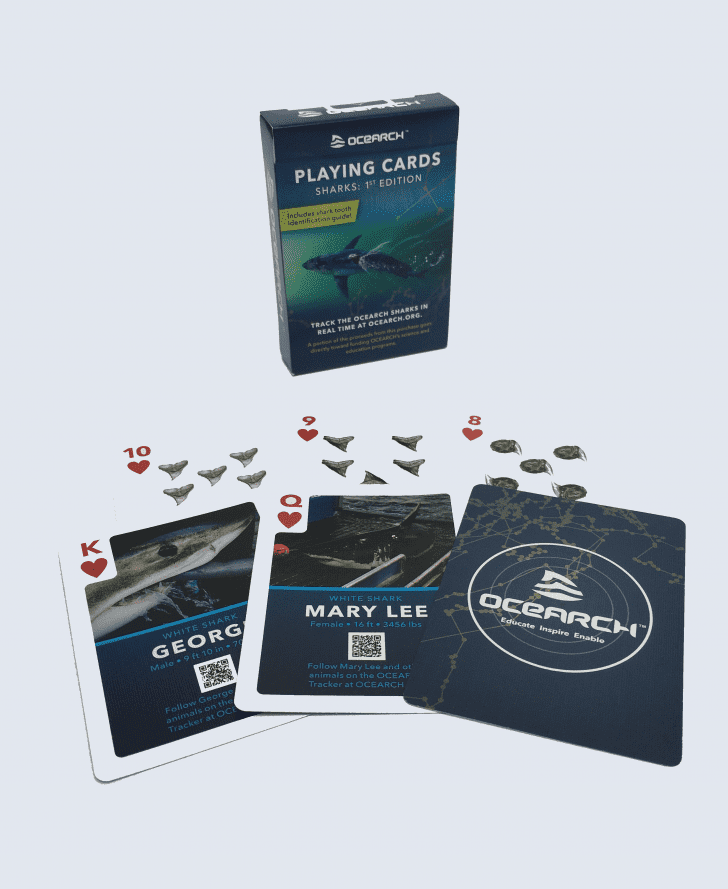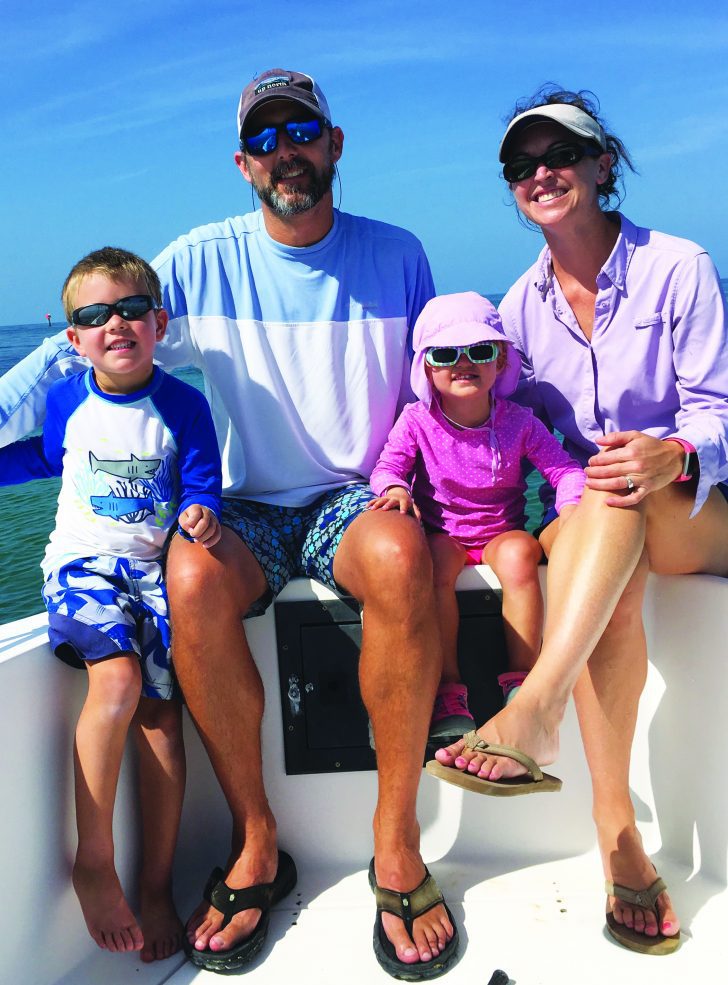How a Southwest Florida Mother’s Love for Fishing Grew into Ocean-Sized Opportunities
Since I was a kid, I’ve always loved fishing! I spent my summers in New Hampshire at a family cottage on a small lake. I spent every hour of sunlight fishing for dinner, which usually consisted of pickerel, bass or trout. I grew a full appreciation for nature and the environment around me. Little did I know this would plant the seed for the future and lead me to bigger opportunities than I had ever imagined possible.
Those childhood years fostered my love for aquatic life, which led me to Michigan State University (Go Green) where I earned a degree in fisheries and wildlife management. There, I completed two study abroad programs, one in the Bahamas studying tropical fish ecology and the other in Western Australia studying conservation and environmental management. After college, I moved to the Florida Keys, where I taught marine science education at the Newfound Harbor Marine Institute. I frequently fished for nurse and bonnethead sharks to stock our educational shark holding pond. Later, I moved to southwest Florida and taught science in the Florida public school system before becoming a stay-at-home mother. When it was time to go back to work, I wanted to educate children beyond my classroom and bring meaning to my life by directly protecting our oceans. With this in mind, I combined my love for the ocean, education, and playing games to start a business, Ocean Family Games. Ocean Family Games’ mission is to create ocean-themed games and children’s books that educate people on the importance of our oceans and how to help protect them. Last year, I decided to donate a portion of our profits to shark research. We connected with OCEARCH and are now proud partners.
OCEARCH is a non-profit shark research organization with a mission to accelerate the ocean’s return to balance and abundance, through scientific research and education. They open-source data so the public has access to tracking sharks in real time. Through this research, we learn about migration patterns, reproduction, and nursery area locations. Knowing this can improve global conservation and public safety awareness. Ocean Family Games partnership with OCEARCH makes us truly unique because it allows us to fuse their scientific data into our games to further educate people on the most current research.
Due to our love for sharks, this past October, we launched our first co-branded product, a deck of OCEARCH Shark Playing Cards that allows players to track sharks in real time. This is a standard deck of playing cards that includes 12 of OCEARCH’s tagged sharks, several shark tooth illustrations and a shark tooth identification guide. Ten percent of sales go toward funding OCEARCH’s shark research and education programs. Since launching our product, we’ve sold thousands of units and are in locally owned stores throughout southwest Florida, including marinas, gift shops, aquariums, and museums. Since partnering with OCEARCH, I have joined them on several expeditions including Lunenburg, Nova Scotia, Jacksonville, Florida and Brunswick, Georgia. In Nova Scotia, I witnessed the tagging of Vimy, a 1,164 pound, 12’ 9” adult great white shark. You haven’t lived life until you’ve seen a shark of this magnitude up close and personal.
Why focus on sharks? Sharks are important because they are an indicator species, meaning when shark populations are healthy, the oceans are healthy, too. Sharks remove sick and weak animals, which allows for a healthier and stronger gene pool. Sharks are also important because they are apex predators, meaning they are at the top of the food chain and help balance the ecosystem. For example, sharks eat grouper, grouper eat parrotfish, and parrotfish eat algae off of coral reefs. When shark populations are unhealthy, the grouper population is more abundant, causing the parrotfish population to decline. The problem with this is that parrotfish eat algae off of coral reefs. So, when there aren’t enough parrotfish, algae can overtake the reef and the coral can die due to lack of sunlight. This could be catastrophic to our oceans. Coral reefs provide habitat for over 4,000 species of fish and provide vast economic resources for millions of people.
Looking into the future, I am planning to launch several co-branded games and children’s books with OCEARCH and other non-profit marine science organizations. All of the products promote education, conservation and healthy oceans for future generations. To learn more, you can sign up for our newsletter at www.oceanfamilygames.com or follow us on social media at Ocean Family Games.
Katharine Baumgartner President,
Ocean Family Games. Play Games. Save Oceans.




